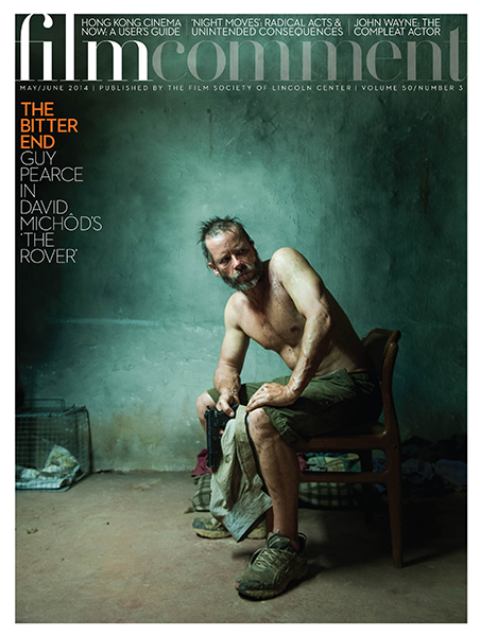
Anyone who’s followed Tsai Ming-liang since his feature debut Rebels of the Neon God in 1992 has sometimes needed to shake off the feeling that he plows one furrow a little too often. No other contemporary director has returned so compulsively to the same themes, the same images, the same actors, the same tragicomic tone. In Stray Dogs, the shots of Lee Kang-sheng struggling in driving rain and wind to hold up a signboard advertising expensive real-estate inevitably bring to mind the shots in Vive l’Amour (94) of Yang Kuei-mei trying to put up her “For Sale or Rent” posters under similarly adverse weather conditions. The shots of vagrants settling in the shells of derelict buildings likewise recall the central motif in I Don’t Want to Sleep Alone (06), while Lee’s invasion of a luxury furnished apartment for a good night’s rest alone takes us back to Vive l’Amour again. But if this kind of repetition feels excessive, the remedy is to think of the artist Giorgio Morandi, who spent his entire life painting bottles resting on a sideboard. Tsai Ming-liang is not like other directors. Is he more like a painter? Cinema’s answer to Morandi?
Stray Dogs is in fact unlike Tsai’s nine previous features in one crucial respect: it does away almost completely with continuity editing. Most of its scenes are single shots, and there’s no causal link between one and the next. Some shots are so realist that they could have been taken with a hidden camera. Others are so stylized that they might well represent dreams. The only narrative thread that runs through the first hour or so of the film relates to… cabbage. A little girl buys the vegetable in a supermarket, is ridiculed for having done so, brings it home, and treats it as a kind of doll; then later, when her father finds her missing, he grabs the cabbage from her spot in the family bed and bites into it in a frenzy. The cabbage aside, Stray Dogs is resolutely—you could even say defiantly—nonnarrative.

The backstory, if there ever was one, has been suppressed. The film shows us a care-worn middle-aged man (Lee Kang-sheng, who has been at the center of every Tsai film since the start) looking after his young son and daughter as a single parent. Homeless, they squat in abandoned buildings. He earns a little from his job holding up the signboard, and buys them food; the kids also eat free samples handed out in supermarkets. The children are also seen exploring the countryside and a storm drain on their own, and on a trip across featureless mudflats with their father. (The film’s Chinese title, Jiaoyou, means “Excursion.”) There’s also a woman, a supermarket manager, who feeds stale meals to stray dogs and takes on the role of surrogate mother to the kids. Complicating matters just a little, she is played by all three of Tsai’s favorite actors: Yang Kuei-mei in the prologue, Lu Yi-ching in the supermarket, and Chen Shiang-chyi in the closing scenes. The woman at one point snatches the kids from their father, but later welcomes him back into their fold. However, she silently demurs at entering into relationship with him.
Tsai’s installation-art aesthetic has roots in Warhol’s early portrait films (and maybe even in Beckett’s early novels, which are also manically repetitive), but it’s pretty singular in early 21st-century art. When Lee, in tight close-up, recites—and then sings, tunelessly—“Man Jiang Hong” (“The River Runs Red”), a famous lament by the Song Dynasty general Yue Fei, the bathos is first absurd, then oddly touching, not least because he sheds a tear. Such shots remind us that Tsai has been filming Lee’s face for as long as Truffaut filmed Jean-Pierre Léaud as Antoine Doinel. “The shame of defeat is not yet washed away,” Lee intones. Tsai may well be cinema’s foremost connoisseur of defeat: the best chronicler we have of the temps mort between social reality and darkly comic dreams of despair.








